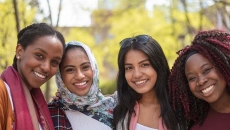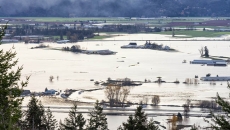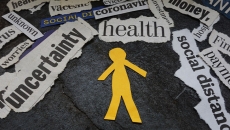Intergenerational trauma, an unspoken yet formidable force, weaves its somber threads into the very fabric of our communities, etching an enduring imprint on the collective psyche. This deeply ingrained issue, frequently overlooked and relegated to the shadows, maintains its grip on families and individuals across successive generations. The profound significance of intergenerational trauma, the mechanisms through which it is passed down, and its far-reaching effects on mental well-being, familial relationships, and community identity are undeniably prevalent. As such, understanding intergenerational trauma is of the utmost importance to truly heal and reach one’s highest potential.
Intergenerational trauma is when traumatic experiences are transferred from parents to children through biological changes in the body or learnt behaviors. Trauma is the emotional response caused by a singular or series of distressing events that are outside one’s ability to cope. These traumatic roots run deep, with events like colonization and the 1947 partition of India and Pakistan leaving profound scars within our community. The trauma of these events persists, influencing how communities perceive themselves.
A practicing psychiatrist, best-selling author, and Clinical Associate Professor at The University of British Columbia, Dr. Shimi Kang shares, “My dad is 90 years old and was 14 years old during the Partition. He witnessed his best friend being murdered. Throughout his adult years, my father suffered mood issues, likely untreated PTSD. I know my own serious health issues have been impacted by intergenerational trauma. My underlying medical issue comes from an inherited/genetic disorder of low collagen production, causing joint issues, early cataracts, spinal cysts, and chronic pain. Thankfully, I now have awareness of the impact of intergenerational trauma and the knowledge to seek sophisticated medical treatments along with traditional Punjabi/South Asian medicines, such as turmeric, yoga, and meditation/kirtan, to help me function. I cannot imagine what would have happened to me without this knowledge. I have suffered greatly and do not want others to suffer anymore.”

Dr. Kang explains the pivotal role of adrenaline and cortisol, which are more easily triggered as a result of trauma. We know adrenaline triggers survival instincts like freeze (e.g., anxiety), fight (e.g., anger), and flight (e.g., distraction/addiction), explaining the increased rates of mental health issues, violence, and addiction among all those affected by intergenerational trauma. Cortisol accumulates in collagen-rich areas of the body, including tissues, muscles, and fat stores, explaining the increased rates of diabetes, heart disease, and cancer among all those affected by intergenerational trauma. In such cases, culturally rich meditation, art, and movement prove therapeutic and offer solace. Though post-colonial communities face added risks, such as post-migration first-generation challenges, including alcoholism, loss of identity/career, family isolation, mental illness, and domestic violence, that contribute to cortisol-related conditions, recovery is not just conceivable but imperative.
Undoubtedly, the stories of elders contain a recollection of harrowing experiences during the Partition, of leaving their homes and watching their lives change forever. Hardyal Singh Sandhu was born two years after partition and is part of the Baby Boomer generation; he mentions how the hopes of his elders from India were shattered as their homes remained on the other side. Having recently journeyed to Pakistan to reestablish connections with his ancestral village, he not only rediscovered his family home but also had the opportunity to hear first-hand stories from the current residents. The pain is still palpable as Sandhu mourns unrecoverable financial losses and inescapable societal mistreatment, coupled with a lack of governmental assistance. At a time where basic resources like hospitals for the wounded were a far-fetched notion, the idea of trauma therapy would have been unheard of.

Jas Hundal, a Registered Social Worker and the Clinical Director of Counseling at Future Ready Minds, highlights, “Many clients that I worked with over the years have often spoken about the Partition, reasons behind their immigration story, and also facing racism upon arriving in Canada. Since their parents or grandparents witnessed or directly experienced traumatic events, many clients have voiced that they also suffer from mental health issues, but have been taught to internalize their feelings. When parents are disconnected from their children due to the unresolved trauma, children can face the adverse impacts of the trauma.”
Sandhu remembers that for his father, life was primarily about survival, given how much they had lost during the Partition; his family worked hard to rebuild from the ground up. Thus, school was not the central focus for the children of the family as mere survival in the face of adversity took precedence over formal education. That said, despite the hardships, Sandhu’s family did support his educational aspirations and he achieved a significant milestone by becoming the first young man from his village to attain a Master's degree. Sandhu, who initially served as an Excise and Taxation Commissioner for the Punjab government, later retired as a teacher at a private school in Canada.
Sandhu elaborates, “When I was growing up, education was regarded as an extra luxury rather than a necessity. However, as time has evolved, this landscape has shifted, and education has taken on an entirely new level of importance for today's parents.” This shift in emphasis on education represents a key facet of how intergenerational trauma can lead to varying value systems and beliefs across generations. Each generation’s priorities and aspirations may differ significantly, reflecting the enduring impact of their own experiences.
Talia Ahmad, a younger Millennial voice, offers a glimpse into her personal experiences amidst the backdrop of intergenerational trauma and the subtle yet profound influence of gender roles. Her mother, who had weathered her own traumatic past, was unwavering in her determination to shield her daughter from a similar fate. Despite her having the freedom to pursue her dreams, Ahmad grappled with a poignant form of survivor's guilt. Growing up, she often pondered, "If my mother couldn't find happiness in her life, how could I ever deserve it?"

To navigate this intricate emotional terrain, Ahmad embarked on a journey of self-discovery. This path included introspection, counseling, the wisdom gleaned from podcasts, and the guidance of a life coach. Through her journey of forgiveness and understanding, she reached a point where she regarded her parents as humans, who, like anyone else, had their fair share of struggles and missteps. “I remember my dad telling us how he was beaten up by his own father when he asked for a bicycle. So, he probably thought he was an amazing father for getting us the best toys from abroad. We need to understand that our parents did the best they could, rather than blaming them.” Surely, the trauma experienced by one generation ripples through family relationships.
To break free from this cycle of intergenerational trauma, awareness and acknowledgment are essential. The stories of those who have lived through it humanize the issue and reduce the stigma associated with it. Hundal details, “We have to acknowledge that our people have been impacted by trauma and they are not at fault for what has happened to them. We all have a responsibility to future generations to break the cycle and shift to an action stage. This is vital for our communities to continue to flourish.” By seeking help, support, and engaging in open dialogue, individuals and communities can break free from the chains that bind them to the past. Together, we can unravel the threads that hold us back, forging a path towards healing and resilience. The legacy of intergenerational trauma can be rewritten, and a brighter, more resilient future awaits.






